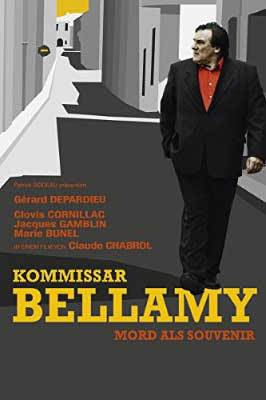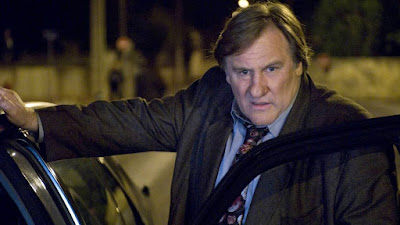On one level this film
from director Claude Chabrol appears to be a homage to the Georges Simenon
character of Inspector Maigret but as the film progresses and reveals more
of Bellamy's character, flaws, insecurities, passion, indifference it begins
to stray from the known Maigret in the books. Maigret is as solid as the
pyramids but Bellamy begins to show cracks in that façade. At work
perhaps he is like Maigret - and possibly Chabrol is intimating that away
from work Maigret is not in control, has no men to order about and is full
of self-doubts about his personal life. The performance from Gérard
Depardieu as Bellamy is complex, haunting and real. By this time Depardieu
had put on an enormous amount of weight since his days of being a romantic
lead and his bulky, hulking near gargoyle shape with his misshapen nose is
in such contrast to this tender, gentle man that it gives him an aura of
vulnerability and sadness as he tries to both solve a murder and deal with
his life.
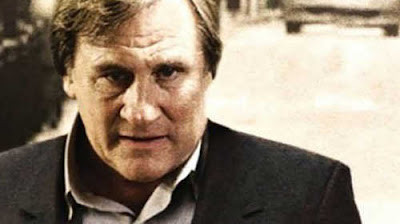
The plot is nearly amorphous - it is a shaggy dog story of a possible murder
that really leads nowhere. Can a murder investigation - such as it is - be
a McGuffin with the real purpose to simply be a character study. If not,
it is one of the most casual murder cases and investigations one can imagine.
There is no urgency to any of this. It is hard to imagine an American film
taking this route though Altman's The Long Goodbye comes to mind. Bellamy
is on vacation with his wife Francoise (Marie Bunel) in the country house
that she grew up in. The days pass slowly, the garden, the friends in town,
his time spent with a woman that even after years of marriage he is still
passionate about (hard to imagine Maigret feeling his wife's breast). Bellamy
is a famous detective ala Maigret and has even written his memoirs.
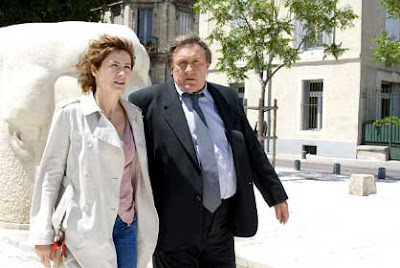
A stranger has been hovering about the house and after making contact Bellamy
agrees to go see him in his hotel room. The man claims to have murdered someone
and hands Maigret a photo of the man - it is of a man in the news for
committing insurance fraud and dying in a car crash - the scene the film
opens with as it pans though a cemetery to a car that crashed off the cliff
and the burnt victim. But the man in the car isn't the man in the photo.
Bellamy gets intrigued and becomes a father confessor as much as a policeman
as he begins to unofficially interview people incessantly - the wife of the
missing man, his mistress, the friend of the real dead man. But like Maigret,
Bellamy is as interested in human nature as clues.
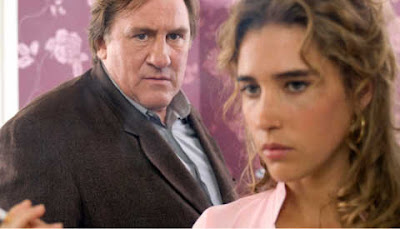
Meanwhile, his younger derelict self-destructive step brother (Clovis Cornillac)
shows up to stay with them causing old wounds to surface. And suspicions
that his wife may have slept with him. I am not really familiar enough with
Chabrol's work to understand how this fits in his life time of work. He was
79 at the time and this was to be his final feature film. Often called the
Hitchcock of French cinema, this does not exemplify that at all - there is
no tension, there isn't really a mystery, there may in fact not be a murder
- much is left unresolved - I would not even call this a slow burn mystery
- there is no burn - but instead an intimate exploration into his life. It
is as if we are peeking in on people's lives and as with any of us, it is
not always comfortable.
